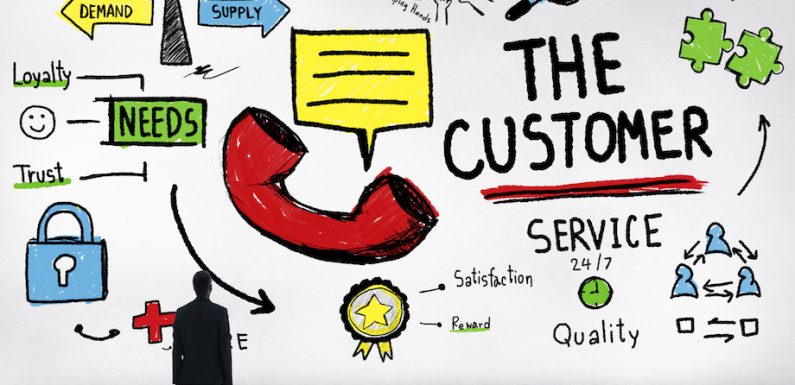
Customer service is the provision of exceptional service to clients prior, during, and even after a sale. The perception of successful interactions with customers depends heavily on staff “who are able to adjust themselves to that of the customer”. This includes staff who have excellent interpersonal skills to deal with different types of people and situations. It also means staff who are able to adapt well to the particular culture of the business.
There are some attributes of good customer service, which are related to the ability to perceive problems and adapt to them, the ability to resolve problems quickly and effectively, an ability to communicate clearly, an ability to listen carefully to and understand customers’ needs, an ability to apply appropriate empathy, and a willingness to take ownership and responsibility for their actions. We asked hundreds of business leaders from all around the country, the following questions to evaluate how they could improve their customer service skills in their own company. These questions were formulated by managing directors from a leading professional services company. We found that almost all of the executives surveyed agreed that their organisations’ customer service was one of their key performance indicators.
It is also a common work-related competency for many organisations. An effective customer service person not only looks after the front line, but also encompasses the back office. Managers need to ensure that each member of their staff has effective communication skills, both verbal and non-verbal. Communication is key to ensuring the customer gets the right product or service, a fast reliable service, effective after sales service, and a polite and friendly staff attitude. Managers should encourage staff to participate in online forums, use social media to promote company activities, set up a website, and to provide articles, case studies, blogs, and videos relating to their organisation.
Customer service can also be measured in terms of customer satisfaction and retention rates. Surveys and focus groups have established that there are big gaps between the way customers feel about particular products or services, and how these feelings are communicated to executives and other key people in an organisation. The result of this research is that often what is seen as positive feedback from customers may actually be negative feedback, which is why it is so important to address any issues beforehand. However, there are ways in which companies can use positive feedback to improve customer experiences, which is why many organisations are concentrating on improving their social media customer experience.
One of the keys to achieving this is to focus on the “bottom line” – the number of transactions made without any issues or concerns. Customer Service Representatives should also understand the role of their departments and be able to measure how successful these departments are in affecting positive change. This will not only make a big impact on your bottom line, but it will also create a culture where customers feel valued, listened to, and that you really do care about their needs.
In addition to this, creating an amazing customer service experience is not just about having employees who are trained, motivated, and able to work well with others. It’s also about hiring the right employees. By ensuring that your employees have great communication skills, and a strong understanding of your social media policies, your employees can go a long way towards ensuring that you attract quality clients and keep your customers coming back. If you want to achieve great results, then this is certainly the direction to take.












